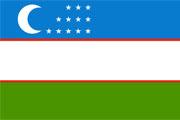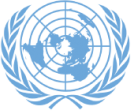Madam President!
Let me express my sincere gratitude for the opportunity to address from this high podium today.
I would like to congratulate Her Excellency María Fernanda Espinosa Garcés with her election as the President of the 73rd session of the United Nations General Assembly.
Distinguished Delegates!
Today the Republic of Uzbekistan is on an important stage of radical and dynamic transformations.
Their goal – strengthening and further developing a democratic law-governed state with an open and socially-oriented market economy and vibrant civil society, in which the main value are rights, freedom and legal interests of individual.
At the initiative of President of the Republic of Uzbekistan Shavkat Mirziyoyev we adopted a five-year Strategy of Actions, aimed at fundamental changes in the economy, state governance, legal and social spheres, in the area of security, in ensuring interethnic and inter-confessional peace and harmony.
A principle “the people should not serve the state bodies, rather the state bodies should serve the people” has become a cornerstone of the main program of democratic reforms.
Elevating the role of parliament and political parties, increasing accountability of the executive branch and transparency in its activity, strengthening institutes of public control and development of the civil society have become practical embodiment of the constitutional principle “the people are the sole-source of state power”.
We are taking significant steps on streamlining the national system of protection of human rights and freedom, strengthening independence of the judicial system. The use of child and forced labor has been ceased. The recommendations of the UN Human Rights Council, treaty bodies, UN High Commissioner on Human Rights and Special Rapporteur on Freedom of Religion or Belief are being coherently implemented.
We’ve also carried out large scale measures on liberalization of economy, creating conditions for free entrepreneurship, ensuring inviolability of private property, improving investment climate. Free convertibility of national currency has been introduced, access to bank credits has been expanded, and tax and custom reforms have been carried out.
According to the World Bank Report – Doing Business 2018, Uzbekistan was among the ten leading countries that created favorable conditions for doing business.
As a result, today Uzbekistan has acquired an image of a comprehensively renewed, open and dynamically developing country. The chosen course of resolute reforms has become irreversible and it enjoys the broad support of the people of the country.
Madam President!
Today we are witnessing an unprecedented process of formation of a new alignment of power on global and regional levels. Rethinking the principles of international politics and economy, which until recently seemed to be unshakable, is underway. The world is becoming less predictable and unstable. The strength of effectiveness of multilateral institutions and mechanisms, designed to ensure international security, has been put under test.
In this regard, it is crucial to strengthen the central role of the United Nations in international relations, especially in supporting of the three pillars of the Organization, i.e. efforts on ensuring peace, security and sustainable development of countries and regions as well as the protection of human rights. Uzbekistan supports steps taken by the leadership of the United Nations on streamlining the governing system of the Organization as well as it calls for gradual reforming its organs, including the Security Council taking into account today’s realities and challenges.
In addition, we are ready to actively participate in UN efforts on promoting comprehensive peace, stability and development on the basis of respecting for human rights and freedom, democratization and the rule of law. In this regard, Uzbekistan has for the first time nominated its candidacy to the United Nations Human Rights Council for the period of 2021-2023.
We sincerely hope that our achievements in the area of human rights will become a solid basis for the support of Uzbekistan’s candidacy by the UN member-states.
We also count on the support of UN member-states of the initiative of the President of Uzbekistan to develop and adopt a UN Convention “On the rights of youth” and a General Assembly resolution entitled “Enlightenment and Religious Tolerance”. These documents would facilitate effectively countering threats of terrorism and ideology of radicalism by solving vital social-economic problems of the youth, providing them with an access to quality education and enlightenment in the spirit of tolerance, humanism and openness.
Uzbekistan has already begun advancing these initiatives. In June, 2018 jointly with foreign partners we held an international conference “On the role of youth in confronting religious extremism and terrorism”. At the end of the Forum the participants adopted the Samarkand Declaration.
In 2018 the world community celebrates the 70th Anniversary of the Universal Declaration of Human Rights.
In this regard, the President of Uzbekistan has signed a Decree on the Program of events dedicated to this occasion. We have adopted a special State Program for promoting the essence and significance of this first universal document on human rights as well as for streamlining domestic legislation on human rights, law enforcement practice, and for Uzbekistan’s accession to new international treaties.
Uzbekistan has also made a voluntary contribution to the budget of the Office of the UN High Commissioner for Human Rights in the amount of 100 000 US dollars.
Currently, we are also taking an initiative of convening an Asian International Forum on human rights on November 22-23, 2018 as the final event of our targeted practical work. The Forum will take place in Samarkand City, which, as per a definition of UNESCO, is a “crossroad” of many world cultures.
Madam President,
Central Asia remains as a main foreign policy priority of Uzbekistan.
Today the situation in this region differs from the one we had not long ago. Thanks to joint efforts of the countries of the region, within a short period of time in Central Asia we’ve created a fundamentally new political atmosphere, raised the level of political trust, strengthened traditionally friendly and good neighborly relations among ourselves.
The important outcome of all of this work is the significant progress in resolving such acute issues as demarcation of borders, management of the water resources, and joint use of transport communications. One should note that these very issues have not only remained unresolved for an extended period of time but were also sources of regional tension.
The agreements with neighboring countries allowed to open dozens of checkpoints on the borders of Uzbekistan and liberalized the visa regime. Uzbekistan’s trade turnover with the states of the region increased by 20% in 2017, and by 50% - during the first six months of the current year.
In the near future, at the initiative of Uzbekistan, we are planning to convene a Regional Economic Forum, which should serve as a permanently functioning platform for representatives of business-community to discuss regional projects in the field of trade-economic, investment and innovative cooperation.
The first Consultative meeting of the Heads of State of the Central Asian countries held last March in Astana, became the bright symbol of a new era of regional cooperation. The next forum will take place in March, 2019 in Tashkent.
Most importantly – we are now more convinced that we are united not only by our one past, but by our common future.
The high level of regional interaction in Central Asia receives broad international support. In this regard, I would like to express our sincere gratitude to all our partners and friends who have recently rendered assistance in the preparation and adoption of a historically important resolution of the UN General Assembly entitled “Strengthening regional and international cooperation in ensuring peace, stability and sustainable development in the Central Asian region”.
No doubt that this UN document acknowledges the formation of Central Asia as a single consolidated region, the countries of which (and I would like to put special emphasis on this) are capable by joint efforts to solve common regional problems, to ensure prosperity, well-being and worthy future for their population of 70 million.
The sustainable development of Central Asia stipulates maintaining ecological equilibrium in the region which directly depends on the mitigation of the consequences of the drying up of the Aral Sea.
For the past several years Uzbekistan has implemented a number of large scale projects in the Aral Sea zone.
Uzbekistan has initiated the establishment of the Multi-Partner Human Security Trust Fund for the Aral Sea Region, which was supported by the United Nations. President of Uzbekistan Shavkat Mirziyoyev during his address at the 72nd session of the United Nations General Assembly last year and at the Summit of the International Fund for Saving the Aral Sea, held on August 24 this year in Turkmenistan, again reminded about this initiative.
The establishment under the auspices of the United Nations of this Multi-Partner Human Security Trust Fund for the Aral Sea Region is an attempt to highlight major risks that pose threats to the most vulnerable population, and also opens a new level of dialogue aimed at comprehensive and human based solutions which focus on the real needs of people, taking into account existing risks and challenges.
We hope for an overall support of the United Nations of this initiative taken by Uzbekistan.
Madam President,
When we speak about Central Asia, we can’t help but to mention Afghanistan – the country which we consider a historical part of the single cultural-civilizational space of our region.
Stable Afghanistan is a prerequisite for the sustainable development of Central Asia as a whole.
Recently Uzbekistan has notably expanded its bilateral relations with Afghanistan, actively joined multilateral efforts on resolving the Afghan problem and is making real contribution to restoring the country’s economy as well as to developing close trade-economic and transport-communication ties.
In March of the current year in Tashkent we convened the Conference on Afghanistan. As President of Uzbekistan Shavkat Mirziyoyev stated during his address at the Conference, and I quote, “we are ready, at any stage of the peace process, to create all necessary conditions for organizing on the territory of Uzbekistan direct negotiations between the Government of Afghanistan and the Taliban Movement” (end of quote).
The unanimous adoption of the Tashkent Declaration has become the main outcome of the Forum. It reinforced a firm consensus on the regional and global levels on the necessity of the earliest launch of the direct negotiations between the Government of Afghanistan and the Taliban Movement without any preliminary conditions.
We are convinced that the readiness of the confronting parties to mutual negotiations in the name of vital interests of the multinational Afghan people would become a solid basis for advancing peace process in this country.
Madam President,
In Uzbekistan, we fully understand that the success of the large scale program of the democratic transformations, outlined in the current Strategy of Actions, as well as of our foreign policy initiatives, aimed at facilitating international peace and stability, will to a large extent depend on the support of our friends and partners, and the international community as a whole.
Therefore, Uzbekistan is open for a broad international dialogue. We are sincerely interested in Uzbekistan’s further integration into global political and economic ties, developing constructive and mutually beneficial cooperation with all interested countries.
Thank you for your attention.


